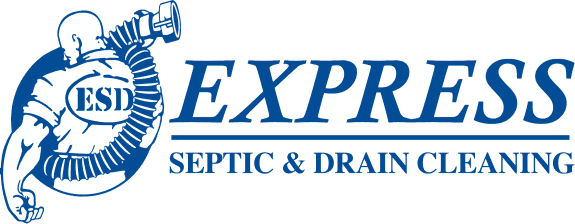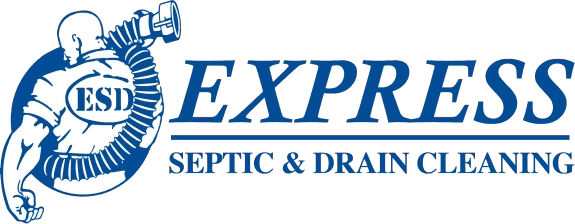Trying DIY tips to fix your plumbing can be an idyllic method of cutting back expenses. But it is not recommended because it violates certain plumbing codes, endangering the integrity and safety of your home. It is even worse if you opt to work with an unlicensed plumber because they commonly fail to acknowledge the plumbing codes of conduct.
Plumbing code violations might not seem serious at first, but they affect the quality of your piping in the long term. They end up costing you more money sometime later and might even make it harder for you to remodel or flip your house. Some common plumbing code violations that you need to look out for include:
Using Illegal and Improper Plumbing Material
The use of illegal or improper piping material violates plumbing codes. It could be products such as rubber fittings and corrugated pipes recommended by DIY “pros” on the internet. Such repair materials do not meet the specified standards and might do you more harm than good.
It is advisable to seek professional insights or conduct prior research before choosing any plumbing material to ensure it adheres to the plumbing codes. That way, any repairs won’t violate the code or affect the integrity of your piping system. Alternatively, you can work with a licensed expert since they already use approved and legal products.
Using Incorrect Drain Piping Sizes
The drainage system is a vital part of any plumbing system because it carries away black and gray water from the house. Therefore, it is important to use the right pipe sizes for all drains in your home. Failure to do that violates the plumbing codes. It endangers your health since the sewer pipes might burst, spilling sewage if the lines are too small. For that reason, it is important to ensure that all pipes used for your drainage are of the right size.
Incorrect Drainage System Sloping
Wastewater from your home relies greatly on gravity to move down the drain. Therefore, you should ensure that the drainage system slopes downward toward the city sewer lines or a sump. Failure to do so violates the plumbing codes since it increases the risk of the sewage stagnating or draining back toward your home. The recommended slope dimension for drainage systems is an eighth of an inch for a foot-long drain pipe.
Wrong or Improperly Installed Sink Traps
Sink traps are very useful in plumbing systems because they keep sewage odors from getting inside your home. However, installing the wrong sink trap sizes violates the plumbing code.
Therefore, it is crucial to ensure that the sink traps are properly installed by a trained professional. They should also be of the right size to prevent odor or sewage from slipping back into your house.
Failure to Leave Enough Space Around Toilets
Planning and designing are essential when installing plumbing features in a home. One area that needs effective planning is the toilets. It is important to make a good design that leaves enough space around the toilet. As such, people will be comfortable when using the bathroom. Not doing that violate the plumbing codes.
When allocating space for the toilet, it is important to allocate space for furniture, bathroom, and other appliances used in the restroom. The area should accommodate all these features without feeling congested or uncomfortable to use.
Not Installing Pressure Regulators
Failure to install a pressure regulator in your home violates the plumbing code. The reason behind this is that pressure regulators are necessary for reducing water pressure when it exceeds the required standards. In addition, it prevents pipes in your home from bursting or leaking, prolonging the lifespan of your plumbing system.
Having Improper Vents in Your Bathroom
Bathrooms tend to produce a lot of odors, especially when the sink traps are dry or leaking. Therefore, installing vents that take the stench out of the house is important and allows fresh air. In addition, it helps keep the bathroom aerated and comfortable to use.
However, there are instances where the bathrooms have no vents at all. This leads to certain problems such as stuffiness, high humidity levels, and mildew or mold growth on surfaces. Eventually, the space becomes gross and uncomfortable to use.
Also, bathroom vents can be improperly installed, especially where the vents lead up to other areas of the home, such as the attic. This, too, affects the quality of air in that space, leading to dampness, stuffiness, and high humidity levels. In addition, if left unattended for long, it can affect the integrity of the roof and the building.
Installing Water Heaters Incorrectly
Water heaters are vital components in every residence because they warm water for home use. But for them to function effectively, they need to be installed correctly. That means that the wiring, boiler, thermostats, pressure regulators, and other parts must be well configured.
The thermostat, for instance, regulates the temperatures, ensuring that the water doesn’t become too hot for use. It keeps users from burning and safeguards the plumbing system from heat damage. Additionally, pressure regulators maintain water pressure at an optimal level, safeguarding the plumbing system from bursts and explosions. Therefore, it is important to install and configure all these components correctly. Doing so protects the plumbing system from catastrophic damage.
Inaccessible Drainage Cleanout Points
Drainage cleanout points are access areas that allow a plumber to clean or unclog drain pipes. They also leave room for drain pipe renovations and repairs. Therefore, it is important to ensure that these cleanout points are accessible and sufficient.
Dysfunctional Water Shutoff Points
Another piping feature that violates the plumbing code is dysfunctional shutoff points. Shutoffs allow users to open and close water, preventing water from running all the time. However, if they are broken, damaged, or dysfunctional, they fail to work properly. DIY plumbing fixes also increase the chances of shutoff points getting damaged. Therefore, it is advisable to always work with licensed plumbers to ensure that the shutoffs are safeguarded from damage.
Loosely Fitted Pipe Joints
Pipes come in different sizes depending on the length of the area they serve. They are adjoined through joints, interconnecting them to form one plumbing system. However, if the pipes are loosely fitted, they tend to leak or burst open when the water pressure is too high. This normally happens when the interconnections are done through DIY practices, especially due to the lack of training and expertise.
All pipes must be connected tightly to prevent them from leaking, especially when the water pressure is high. In addition, it helps prevent water leakage incidents that expose your house to dampness and water damage.
It is important to read through and understand different plumbing requirements before DIY repairs. Doing that helps prevent accidents and other damages that result from poor installation of plumbing features. It also helps prolong the lifespan of the piping system, saving you money in the long term.
Are you looking for high-quality plumbing installation and maintenance services in Nampa, ID? Express Septic & Drain Cleaning is here to help you. We offer the best septic tank services for residential buildings. Our staff has extensive experience with septic tank installation, inspection, and repairs. Contact Express Septic & Drain Cleaning now to learn more about our services.



